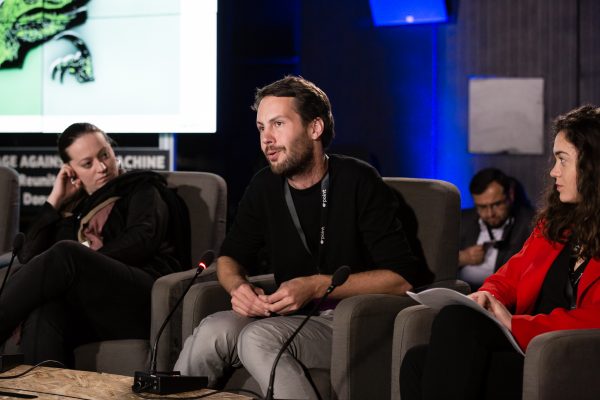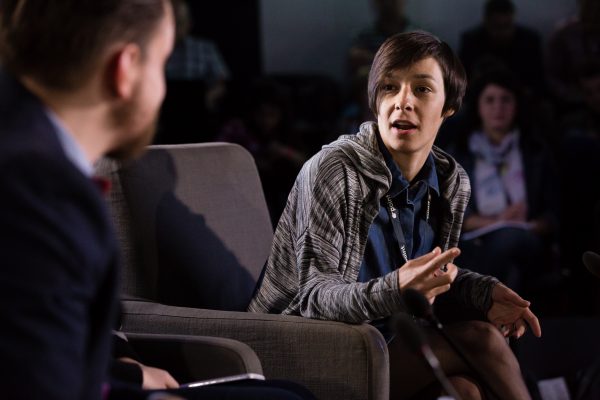Point against the Balkan mafia
First panel of Point’s second day was pretty well attended, which surprised the moderator Dmitri Romanovski, considering that most participants stayed up very late last night.

Milica, Jelena, Atila, Luna, Blina and Dmitri told us about TransparenCEE Network and its activities on improving cooperation between organizations in Central and Southeastern Europe.
They base their activities on thee principles. The first is creation of database with all the projects and interesting tools created in the region; the second is to organize events like PDF (Personal democracy forum) where activists can exhchange experiences and scaling the projects in other countries. Starting with this year’s PDF, work groups of activists with similar interests are being organized as well.
The question is, however, do we need all this?
Milica (CDT, ActionSEE) thinks that this kind of initiatives is definitely needed. She particularly likes that in the cooperation of TransparenCEE and ActionSEE network is that there is no forcing of projects upon anyone. Such approaches have already been tried and produced no results.
Luna Kalaš has both the experience of working in the Balkans and in the Central and Eastern Europe, since she was born in Sarajevo and now works for TechSoup in Warsaw, spending a lot of time on projects in Ukraine as well. What she finds very important when entering a cooperation, is to keep in mind that not everything will happen the same way as in your country. We may face the same problems, but we can have different work concepts. So, no prejudice.
K-monitor (Hungary) works on publishing assets cards. Atila told us that when they started, they were practically rewriting data from assets cards into Google forms. Luckily, they soon discovered The Engine Room and realized that there is already a tool for what they need. After they connected, they went through the painstaking process of scaling, so now they are thinking about a tool to make this process easier on other organizations who are going through the same. Great example of cooperation.

Jelena (GONG) told us about the importance of such events. When there is so many people in one place, good ideas are born everywhere, often even on smoking breaks. When it comes to challenges, Jelena thinks that one of the greatest is how to measure the successes of networking. orkinga.
For Blina (Open Data Kosovo), there are two main benefits of these networks and the events they organize. The first is that you meet very smart people and the second is connecting the people who work on similar problems.
Finally, Jelena reminded us that the Balkan mafia (and the politicians) work very well together and that, if we want to challenge them meaningfully, we have to cooperate as well. One of the things she finds crucial is opening the data on ownership of companies, to expose the connection between the capital and the politics.